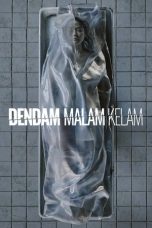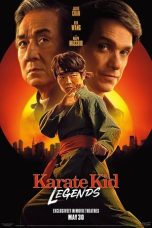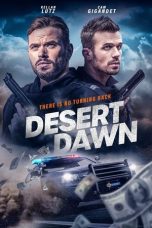Rashomon (1950) Review: Kurosawa’s Groundbreaking Exploration of Truth and Perception
Introduction
Rashomon (1950), directed by Akira Kurosawa, is a seminal work in the history of cinema that revolutionized narrative storytelling and challenged perceptions of truth. The film, based on Ryūnosuke Akutagawa’s short stories “In a Grove” and “Rashomon,” explores the nature of truth and human fallibility through a unique narrative structure. With its innovative approach and profound themes, Rashomon has left an indelible mark on both Japanese cinema and the global film industry.
Plot Summary
Rashomon unfolds through a series of conflicting testimonies about a violent incident, revealing the subjective nature of truth and human perception. The film is structured around the recounting of a crime from multiple perspectives, each adding layers of complexity to the narrative.
- The Crime: The story begins with a samurai and his wife traveling through a forest. The samurai is found dead, and the wife is raped. A bandit named Tajomaru (Toshiro Mifune) is arrested for the crime. The film’s central mystery revolves around what truly happened during the attack.
- The Testimonies: The narrative is presented through the testimonies of four key witnesses: the bandit Tajomaru, the wife, the deceased samurai (through a medium), and a woodcutter who discovered the body. Each account offers a different version of events, revealing the personal biases and self-serving motives of the characters involved.
- Contradictory Accounts: Tajomaru claims that he seduced the wife and killed the samurai in a duel. The wife’s testimony describes a harrowing ordeal where she was raped and then witnessed her husband’s death. The samurai’s spirit, speaking through a medium, provides yet another version, adding further ambiguity to the case. The woodcutter’s account reveals hidden truths and contradictions, further complicating the story.
- Resolution: As the testimonies unfold, the true nature of the crime remains elusive. The film concludes with a reflection on the nature of truth, justice, and human nature, leaving viewers to question the reliability of each account and the possibility of an objective truth.
Themes and Interpretation
Rashomon explores several profound themes through its innovative narrative structure:
- The Nature of Truth: The film delves into the subjectivity of truth and the ways in which personal biases and self-interest shape individual perceptions. Each character’s account of the crime is colored by their own experiences and motives, raising questions about the nature of objective truth.
- Human Fallibility: Kurosawa’s film highlights the fallibility of human memory and perception. The conflicting testimonies illustrate how individuals can interpret the same event in vastly different ways, driven by their own fears, desires, and shortcomings.
- Justice and Morality: Rashomon also examines themes of justice and morality. The differing accounts of the crime reflect the complexities of moral judgment and the challenges of achieving true justice in a world where perceptions are clouded by personal biases.
- The Search for Redemption: The film’s conclusion touches on the search for redemption and the hope for moral integrity. The woodcutter’s final act of compassion suggests a possibility of goodness and redemption amidst the ambiguity and moral uncertainty.
Direction and Cinematography
Akira Kurosawa’s direction and the film’s cinematography are integral to its impact:
- Innovative Narrative Structure: Kurosawa’s use of multiple perspectives and non-linear storytelling was groundbreaking and has since influenced numerous films. The narrative structure challenges viewers to actively engage with the story and question the reliability of each account.
- Cinematography: The film’s cinematography, handled by Kazuo Miyagawa, is notable for its use of natural light and innovative camera techniques. The iconic scenes, including the famous Rashomon gate, are shot with striking visual composition that enhances the film’s thematic depth.
- Symbolism: The film employs powerful symbolism to convey its themes. The Rashomon gate, for example, serves as a metaphor for the conflicting and unreliable nature of human perceptions.
Performances and Impact
The performances in Rashomon are crucial to its success:
- Toshiro Mifune: As the bandit Tajomaru, Mifune delivers a dynamic and intense performance. His portrayal adds depth to the character’s conflicting motives and contributes to the film’s exploration of subjective truth.
- Machiko Kyo: Kyo’s portrayal of the wife is both vulnerable and powerful. Her performance captures the emotional complexity of her character and the trauma of her experience.
- Takashi Shimura: Shimura’s role as the woodcutter is central to the film’s resolution. His performance adds a layer of empathy and humanity to the narrative, contrasting with the more self-serving accounts of the other characters.
Critical Reception
Rashomon was met with critical acclaim upon its release and has since been recognized as one of the greatest films of all time. The film won the Golden Lion at the Venice Film Festival and received widespread praise for its innovative storytelling and thematic depth. It has influenced numerous filmmakers and continues to be studied and celebrated for its groundbreaking approach to narrative and its profound exploration of truth and perception.
Available Streaming Services and Rental/Purchase Options
For those interested in watching Rashomon (1950), the film is available on several platforms:
- Amazon Prime Video: Available for rental or purchase, with rental prices around $2.99 and purchase prices about $14.99.
- Apple iTunes: Available for rental and purchase, with rental prices around $2.99 and purchase prices about $14.99.
- Google Play Movies & TV: Available for rental or purchase, with rental prices around $2.99 and purchase prices about $14.99.
- DVD/Blu-ray: Available for purchase through various retailers, including Amazon and Barnes & Noble.
Conclusion
Rashomon (1950) is a groundbreaking film that offers a profound exploration of truth, perception, and human fallibility. Directed by Akira Kurosawa, the film’s innovative narrative structure and thematic depth have made it a classic in world cinema. With its powerful performances, striking cinematography, and thought-provoking content, Rashomon continues to captivate and inspire audiences, challenging our understanding of truth and justice in a complex and uncertain world.

















